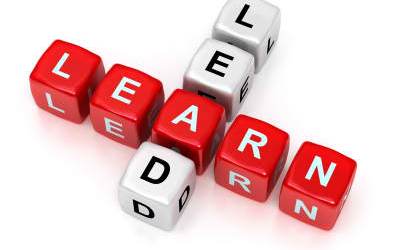Why is leadership important to you? There are many broad answers to this question: to renew the world, our country, our culture, our families, etc. There may also be many personal reasons: a deep love for people, a desire to help others, a sense of calling and self-sacrifice.
Virtuous leadership is the approach that helps humanity to become who we are meant to be both as individuals and as a culture. It enables us to move towards the true progress that we seek. As author Bill Hybels often states, “Everybody wins when a leader gets better.” If leadership is that important, then we need to be intentional about growing as leaders and to do this, leaders must be learners.
There are three primary ways that one can learn leadership: direct personal experience, through the wise counsel of others, and through the study of leadership materials.
1. Experience – Leaders get in the game. If you want to learn to be better leaders, pick something and lead. Sometimes opportunities for leadership come to you and they may be welcomed (your supervisor asks you to coordinate an event you love) or unwelcomed (a crisis situation that makes you think: this isn’t want I signed up for), but these are opportunities to grow and learn as a leader. However, more often than not, you need to take the initiative. Leaders are initiators. Stepping up to take leadership will be a school of learning leadership. So if you want to grow as a leader, lead something. (More on this here)
2. Wise Counsel – You can learn a lot through the experience of other leaders, from those that have gone before you. You can learn what they learned, learn from their mistakes, and you can often learn quicker than through direct experience. One way to harness the power of this area is to learn from leadership mentors: people we admire who embody leadership virtues and the habits we want. This can happen in two ways, “The Rub Off Factor” (spending time around great people, around excellent leaders, unconsciously impacts your own leadership) and “The Experience Download” (intentionally asking these mentors great questions about their experiences, leadership mistakes, principles, and approaches). Identify a few leadership mentors, spend time with them, interview them and be curious. A second way to harness the power of wise counsel is to have a personal “Board of Directors”. These are people you absolutely trust who have no agenda other than to care for you, to be honest with you, and to hold you accountable. They are trusted friends, a spiritual director, people who love you, know you, and have your best interests in mind. Great leaders throughout history have become great by seeking the assistance of wise counsel. (More on this here)
3. Study – Leaders are readers (and watchers and listeners). There is a wealth of leadership information available. There are over 479 million hits on Google using the keyword ‘leadership’ and 121,231 books you could order on Amazon.com related to the topic. In many ways it is wonderful to have so much information available, but in other ways it’s overwhelming. Successful leaders develop both the competency-based (technical – what a leader does) and character-based (virtue – who a leader is) aspects of their leadership, but great leaders are intentional about putting character and virtue at the foundation of their leadership development. So when considering resources for study, ask, ‘how will this develop my competency or my character as a leader?’ Here are some recommended resources. (More on this here)
Being a learning leader is an important part of being a virtuous leader. It exercises the virtue of humility through the self-admittance that one doesn’t know it all and there is always more to discover. It is also an act of intentionality involving the virtue of temperance (self-control or self-mastery), seeking to align our actions with our vision. To build leadership capacity, just like in sports, you need regular training. What you give time to is what you truly value. So pick one area from the list above and give some time to it. As leadership coach John Maxwell states: “Leadership develops daily, not in a day.”
For further insight on each of the points above, see:
- Get in the Game: Learning by Leading
- The Quickest Way to Learn Leadership: Through Wise Counsel
- Learning Leadership Through Study
